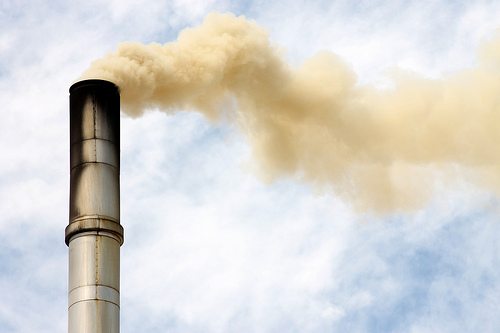

Economy
Carbon politics: foul ball in the 2010 season
Gerald Kutney picks out some of the highlights from his upcoming book, Carbon Politics and the Failure of the Kyoto Protocol, to be published by Routledge in January 2014. In this second of the series, he provides an overview of chapter two.
The driver for climate change legislation has been (largely) the information contained in the Assessment Reports of the Intergovernmental Panel on Climate Change (IPCC). This dependence places incredible importance on the accuracy of the information. As the AR5 has just been issued, it is appropriate to review the problems of the AR4.
The issue was not if a mistake would be made, but when. There were four fundamental weaknesses within the IPCC:
1. Scope of the literature assessment and review
2. Time pressure from the climate negotiations
3. Dilution of scientific expertise by forced regional representation
4. Lack of formal qualifications and standard operating procedures within the IPCC
Errors were bound to happen under such circumstances, which could undermine the credibility of the IPCC and derail climate change legislation. Compounding the risk, there were well-funded climate sceptics who were eager to exploit any flaws within the system. In the AR4, there had been two errors in the report of the WG II that caught media attention:
1. The area of land in the Netherlands that was below sea level
2. The rate of retreat of the Himalayan glaciers
The former became known in the popular press as ‘Nethergate’ and the latter as ‘glaciergate’. While the problem of the Dutch sea levels was quickly explained, the glacier problem would not retreat so quickly.
The significance of this error was badly distorted by the climate sceptics; especially significant were the persecutions and propaganda by some members of the Republican party. An ironic aspect of the Republican hate campaign is its direct connections to the IPCC and the AR4.
The IPCC had been created because of the initiative of a Republican president (Ronald Reagan). Rajendra Pachauri, the chairman of the IPCC, had been supported by the Bush administration and during the preparation of the AR4, the American members of the IPCC had been appointed by his administration.
In addition, it was under the Bush administration that the US government officially accepted and approved the contents of the AR4. One is astounded, then, that the IPCC and AR4 would be so vilified by many Republicans since, in many ways, it is their document.
Scepticism, of course, is a necessary part of scientific thinking. One is reminded of the great scientist Robert Boyle (1627-1691), whose famous work was called The Sceptical Chymist. In his pioneering study, he believed in scepticism where experiments provided support for the theories of science.
But this ‘modern’ skepticism relies on rhetoric and belongs to an era that predates Boyle – the Dark Ages – when dogma determined the validity of the theories of science. Not since the days of Copernicus and Galileo, when scientists dared to claim that the Earth revolved around the sun, has a scientific theory caused so much outrage.
In the past, stubborn naysayers and rulers rejected the new scientific truths, and some scientists faced the inquisition. With climate change, the story unfolds in much the same way as politics again challenges science, especially in the US.
Sadly, the brunt of these allegations has fallen on those scholars associated with the IPCC, men and women who have freely offered their time, responding to a call by the UN to help all of humanity. For their trouble, they have been harassed and slandered by a small, but vocal, opposition.
The real problem, though, is that certain politicians have even tried to raise criminal charges against them. Does it seem right that American citizens, many internationally recognised for their contributions to science, are bullied by elected officials? At this political level, the sceptics movement is a travesty of justice, not only against the scientific community but the rights of citizens in general, that is unprecedented in a democracy.
Besides the sceptics’ distortions, a mistake had been made by the IPCC on the glaciers, which caused the UN to call for an investigation into the procedures of the IPCC, led by the prestigious InterAcademy Council (IAC). Even though the IAC had done an admirable job mapping the way forward, the IPCC failed to grasp the opportunity.
The all-encompassing nature of the crisis suggested a systemic problem within the IPCC, especially in regards to leadership. Leadership was lacking during the AR4 process of Working Group II and completely collapsed afterwards. The major concern was not that within this massive undertaking a mistake was made, but that denial permeated throughout the senior ranks of the IPCC.
No one was responsible. And the underwhelming response to the IAC review itself just highlighted the failure of leadership within the IPCC. At the end, there were no major changes in the leadership structure despite the recommendations of the IAC report.
In the next segment of this series on chapter 3 of Carbon Politics and the Failure of the Kyoto Protocol, an analysis is presented on the intensive diplomatic discussions that led to the Kyoto Protocol, from the viewpoint of the Americans and the Chinese.
Gerald Kutney is managing director of Sixth Element Sustainable Management. His book, Carbon Politics and the Failure of the Kyoto Protocol, is being published by Routledge in January 2014. Pre-order your copy here.
Further reading:
Carbon politics: the gamesmanship of the Kyoto negotiations
Strong national action on climate change spurs on international agreements, says study
Climate change is ‘not a high priority for most politicians’


 Features11 months ago
Features11 months agoEco-Friendly Cryptocurrencies: Sustainable Investment Choices

 Energy11 months ago
Energy11 months agoThe Growing Role of Solar Panels in Ireland’s Energy Future

 Energy10 months ago
Energy10 months agoGrowth of Solar Power in Dublin: A Sustainable Revolution

 Energy10 months ago
Energy10 months agoRenewable Energy Adoption Can Combat Climate Change


























